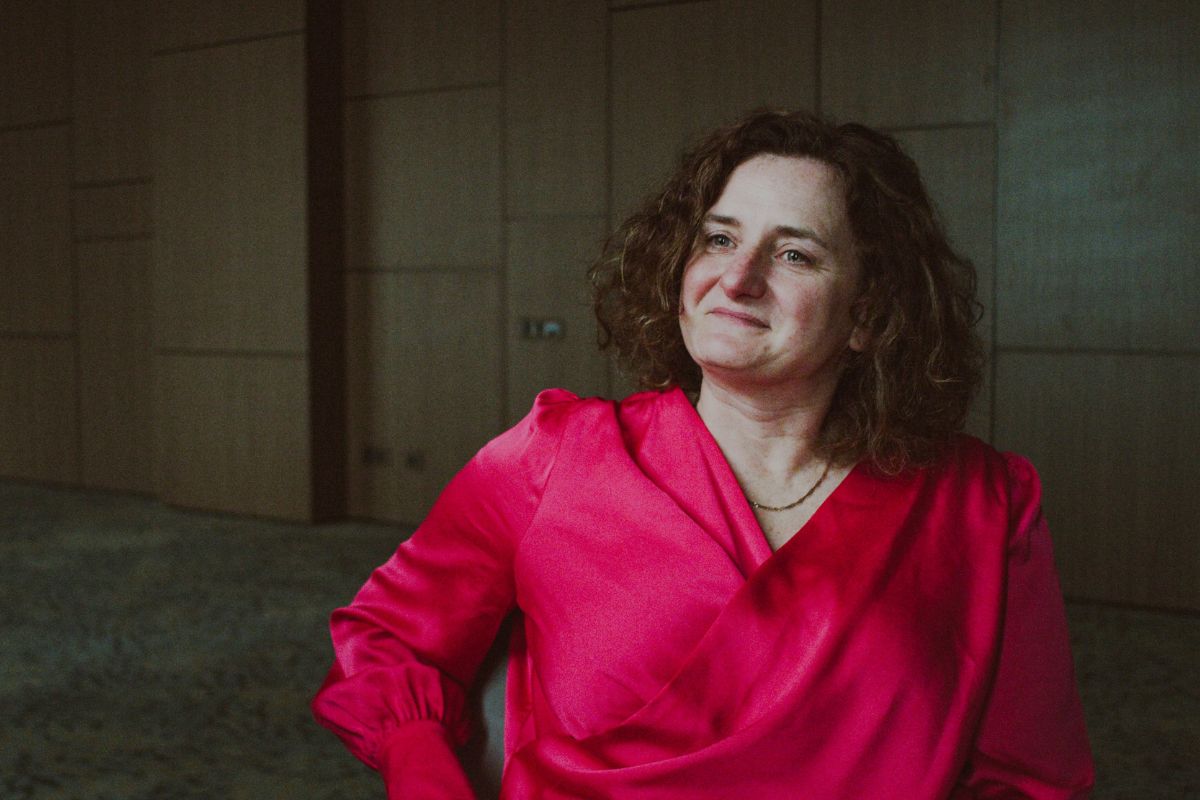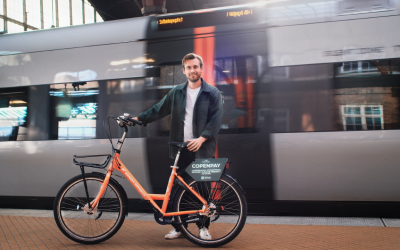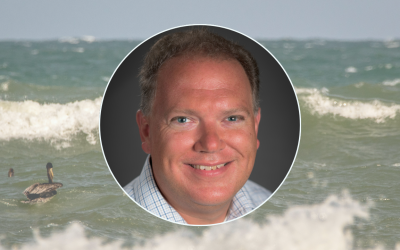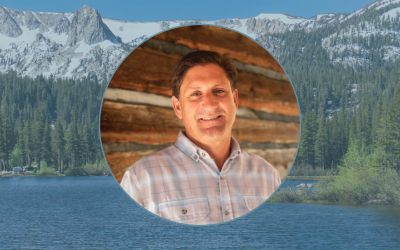“Don’t only think about what you are doing and the impact that you can have within that little box. But see the connection, see the interrelationships between all those things, and see the possibilities of your own impact.”
– Elke Dens, Director of Global Programmes at The Travel Foundation
The elephant in the room: that’s what some of Europe’s travel leaders met to discuss earlier this year at a conference held in Sofia, Bulgaria. With the climate emergency being one of several elephants present, there was a lot to talk about. Destinations and destination managers all over Europe are finding solutions to address the externalities of travel, and they are changing the way cities are being managed. But are these efforts enough? And is implementation happening quickly enough? What else do we as a travel industry need to talk about before it’s too late?
At the event hosted by City Destinations Alliance (CityDNA), Destination Think sat down with several of Europe’s boldest leaders to learn about what is being done and what is holding them back. We’ve gathered the best of what we learned, and today we’re proud to introduce a new series of interviews on the Travel Beyond podcast: Europe’s Travel Leaders.
Our first episode in this series is a brief conversation is with Elke Dens, Director of Global Programmes at The Travel Foundation, a sustainable travel NGO. Elke has always inspired us at Destination Think with her leadership toward a more holistic vision of destination marketing and management. Long-time readers of this blog will remember her from our Forum 2016 event and the Leading Thinkers series. There, she shared her perspective on long-term, responsible destination development from her role at Visit Flanders in Belgium. “I define success in terms of a journey instead of as a destination,” she said. Now, we’re able to share a bit more of her journey.
In this episode, you’ll learn:
- Why Visit Flanders modified how they measure success.
- About the importance of collaboration with residents and communities.
- How the interconnectedness of tourism can be used to your advantage when trying to make bold changes.
Subscribe on Apple Podcasts, Spotify, or your favourite podcast player to join us on this journey.
Show notes
Destination at Risk: The Invisible Burdens of Tourism – A report that describes “how destinations must uncover and account for tourism’s hidden costs, referred to as the ‘invisible burden’, to protect and manage vital destination assets worldwide.”
European Travel Commission – An association representing the national tourism organizations of Europe.
Kate Raworth – Economist and author of Doughnut Economics: Seven Ways to Think Like a 21st-Century Economist
The Travel Foundation – A leading non-governmental organization (NGO) that works in partnership with businesses and governments so that tourism brings greater benefits for people and the environment.
Travel to Tomorrow – A program representing Visit Flanders’ ambition “to make Flanders a flourishing destination with resilient, sustainable and future-oriented places that offer added value to all involved.”
Visit Flanders – The organization responsible for destination management in the Flanders region of Belgium.
Episode transcript
Elke Dens: Don’t only think about what you are doing and the impact that you can have within that little box. But see the connection, see the interrelationships between all those things, and see the possibilities of your own impact, I think. So I would challenge young people on that aspect.
David Archer: Hello and welcome to Travel Beyond, where we partner with leading destinations to explore the greatest challenges facing communities and the planet, surfacing their most inspiring solutions. I’m David Archer, Editorial Manager at Destination Think, and I’m recording from the coastal village of Daajing Giids, British Columbia, in Haida Gwaii, the territory of the Haida Nation.
Today on the podcast, we’re launching a series called European Travel Leaders. So we’re taking a short hiatus from the Netherlands season, which is going on right now. And over the next few months, sprinkled in between our typical episodes from around the world, we’ll bring forward the most valuable lessons we learned from a conference called The Elephant in the Room.
And that was an event held by CityDNA, or City Destinations Alliance, earlier this year in Sofia, Bulgaria. My colleague, Rodney Payne, Destination Think’s CEO, gave a keynote presentation at that event. And he also had the chance to speak one-on-one with representatives from several destinations across Europe. And we’re going to share the first of those conversations today.
So to kick this series off, we’ll hear from a guest who is always inspiring to the Destination Think team, who told Rodney about the meaningful work she’s been doing at the Travel Foundation and previously as the Director of Marketing at Visit Flanders in Belgium.
And that guest is Elke Dens, who travelled to Sofia from Brussels, where she shared some advice for other leaders looking to make bold steps toward regenerative travel solutions.
Rodney Payne: Could you tell me your name, and where you work, and where you’ve worked?
Elke Dens: I’m Elke Dens, and I work three days a week for the Travel Foundation. It’s a, it’s an NGO in tourism. And then the other two days I work for myself, as a freelancer. But I like to spend that time on the things that I really like to do and that I believe in.
Rodney Payne: And you, like me, have spent your career in destination marketing. Where did you work before and what have you done?
Elke Dens: I’ve worked like 16 years for the national tourism board, Visit Flanders, in Belgium, and it was a wonderful job. I always said I had the best job in the world because I could represent the country I live in, and you can do that with a lot of passion and belief.
And so I was a marketing director in this organization and we went through a lot of changes, so that kept me going for a while. But I left there, I think two years ago now.
Rodney Payne: And you’re being very humble. You were the marketer of the year in Belgium and have always done brilliant work. And one of the things that is etched in my mind is when I watch the Travel to Tomorrow video.
Can you tell me where that came from?
Elke Dens: Yeah, that was a milestone also for me because that was a moment, I think it was 2016 when there was a lot of over-tourism in Europe and we were gonna make a new strategy and we said, okay, so actually we were doing very well. Like, on a marketing aspect, if you measure success by the number of people and visitors that we achieved, it was brilliant.
So what can you do more? And then we started questioning, well, maybe we should redefine the success in tourism. And maybe we should not only look at the number of visitors, but also at the community and how they feel about tourism and how tourism is improving their lives. So we started to broaden up the ecosystem if you want to look at it like that. And the movie was just a visualization of this process. Process of asking questions on how we can do better without just looking at growth.
Rodney Payne: And what impact did that have on your organization and executive team when you asked those questions and started reflecting on it? What did you learn?
Elke Dens: It changed completely because we used to have a leadership role, being a national tourism board, and now we said we don’t know. So our stakeholders were not used to that approach. And also from a way of working with subsidies, marketing, even when you listen to local communities, it means that you are listening and that you’re not directing and you’re not creating a, let’s say, a big campaign where everybody fits in, but you really flip it all around, basically.
Rodney Payne: And when did you start to scrape away at the iceberg and start to think about tourism’s environmental impact?
Elke Dens: Well, I think it started with the over-tourism because we were worried about one particular city, Bruges. A medieval city, which has a lot of visitors compared to the number of residents. And so we are starting to worry about it and, involving them in the tourism planning, and they focused attention on those costs side of tourism.
And it’s not only sentiment, it’s also true cost. And then of course we had read the Invisible Burden study of the Travel Foundation already. And we thought we needed to make a true accounting of tourism and not only look at the profit side or the benefits side but also take into account the burdens.
Rodney Payne: Can you tell me about some of the things that you account for and what you heard from the residents of Bruges, you know, what were their priorities? And how did you start to change strategy and help Bruges to think about its future?
Elke Dens: Well, the first thing that we noticed is that a lot of people work in tourism in Bruges, and so they see the importance of tourism.
So they are quite moderate in their perception compared to residents who have nothing to do with tourism. Then it’s more negative, if you want. So we had a good base there, but they did worry about parking space or, at some places, overcrowding that they couldn’t pass through or couldn’t get out of their house in some periods and some places, and we keep on monitoring that. Every two years, we do the same study, and you see that there’s an evolution in it. So by just addressing those problems, they are also somehow on the radar to being solved or to being looked after. But the good thing is that you just keep track of it and try to improve.
Rodney Payne: The world’s facing a lot of big challenges, and we have a big transition to go through very, very quickly, including tourism.
What are some of the things that give you hope and optimism?
Elke Dens: So I read a lot, and I get a lot of hope from what I read from other sectors. And just transferring that to the tourism industry, I see the possibilities there. So that gives me hope. And it’s a lot of people who actually push the limits or push the boundaries. It’s people like, you also know Kate Raworth, who just thinks differently about the economy.
So you see that there are alternatives. Yeah, that gives me hope, I think. Just the idea of having alternatives, people who reach those other scenarios possible in a broad scale, not only tourism, but it’s how you organize society. It’s how you organize economy, democracy, all those things seem to be like moving?
But that’s good. I think when things are moving, then that gives hope already.
Rodney Payne: You’ve done a lot of really good work at the European Travel Commission at Flanders, and now in your work that you’re doing. For other people who may just be starting their journey of understanding the invisible burden of tourism and trying to find the balance that you talk about, what advice do you have for them?
Elke Dens: Well, I think I would immediately ask them to think very broadly, to think like, we use the word holistic, but you know what I mean? Like, don’t only think about what you are doing and the impact that you can have within that little box. But see the connection, see the interrelationships between all those things, and see the possibilities of your own impact, I think. So I would challenge young people on that aspect.
Rodney Payne: It’s really nice to see you again. Thanks for taking a moment to sit down and talk.
Elke Dens: Yeah, it’s a pleasure.
David Archer: This has been Travel Beyond presented by Destination Think, and you just heard from Elke Dens, Global Programs Director at the Travel Foundation. We’ll include links to more resources on the blog for this episode at destinationthink.com.
This episode has been produced and has theme music composed by me, David Archer. My co-producer is Sara Raymond De Booy. Lindsay Payne and Annika Rautiola provided production support. We would like to thank CityDNA for their support of this podcast. You can help more people find the show by subscribing to future episodes and by leaving a rating and review on Apple Podcasts or Spotify.
See you next time.









0 Comments